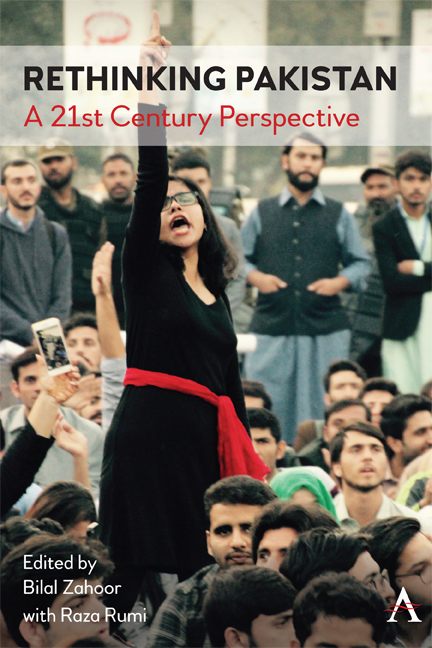Book contents
- Frontmatter
- Dedicated
- Contents
- Acknowledgements
- Introduction
- Part I Identity, Religion and Radicalisation
- Part II Development, Reform and Governance
- Part III Rights, Repression and Resistance
- Part IV Sex, Gender and Emancipation
- Part V Conflict, Diplomacy and Foreign Policy
- Contributors
- Bibliography
- Index
Chapter 22 - Foreign Policy Begins (and Ends) at Home
Published online by Cambridge University Press: 20 January 2022
- Frontmatter
- Dedicated
- Contents
- Acknowledgements
- Introduction
- Part I Identity, Religion and Radicalisation
- Part II Development, Reform and Governance
- Part III Rights, Repression and Resistance
- Part IV Sex, Gender and Emancipation
- Part V Conflict, Diplomacy and Foreign Policy
- Contributors
- Bibliography
- Index
Summary
Pakistan's foreign policy is largely grounded in an insecure environment, which continues to define its thinking. The foremost concern for Pakistan is the threat from bigger India. On the other hand, countries base their relations with Pakistan on the progress made on militant groups; these include India but also Afghanistan and the United States. Such narrow concerns, around which Pakistan's bilateral relations evolve, do no good for the country but invite negative attention.
Pakistan needs to expand its foreign policy options. For one, the prism of viewing everything through Indian lens can be revisited in a more sophisticated manner. While no one expects Pakistan-India relations to iron out in a day, overcoming India fixation can help Pakistan ease its ties with Afghanistan and Iran and even put realistic expectations from the United States and China. This fixation can partly be overcome by streamlining internal political voices; the knee-jerk reaction of discarding those voices and suspecting their links with India put question marks over the acceptance of major foreign policy decision.
A ray of opening can come from how Pakistan deals with Chinese intervention, which presently revolves around economic terms such as opening borders and connecting region. In theory, Chinese projects should help cement the deep people-to-people and economic linkages among different parts of the country and region. Will that happen in practice depends in part on how domestic polity plays out.
For Pakistan to tap its potential, economic input has to be made regular part of foreign policy processes. To dispel the atmospherics of insecurity at home, in which authorities link internal movements with external elements, foreign policy processes should try to tap in domestic diversity, ethnic as well as sectarian. Parliament, representative of all voices in the country, can not only debate the nuances of different external scenarios and their impact for different regions, but also provide guidelines, and above all, oversee or fact-check some of the basic policy assumptions being made.
The Trap of Indo-centrism
Numerous scholars and policy practitioners have concluded that Pakistan's foreign policy largely pivots around India. India's friend is our enemy, and India's enemy is our friend, goes the argument.
- Type
- Chapter
- Information
- Rethinking PakistanA 21st Century Perspective, pp. 227 - 236Publisher: Anthem PressPrint publication year: 2020



